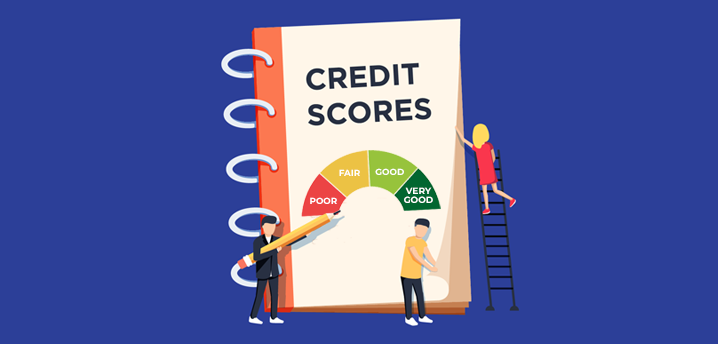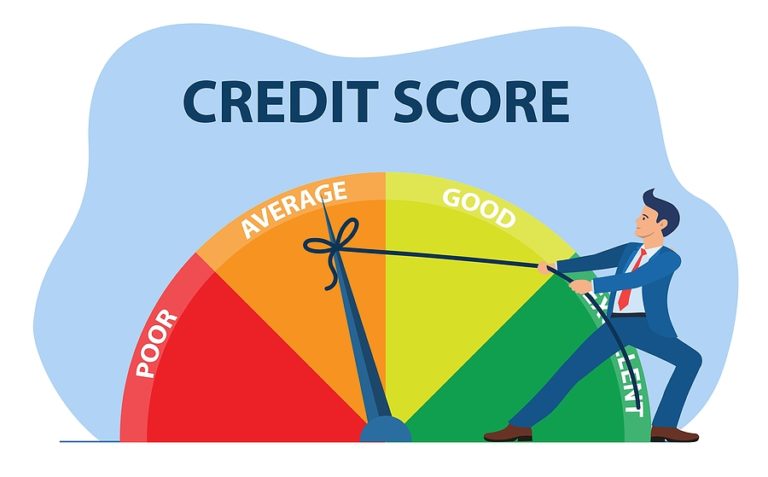Your credit score is more than just a number; it’s a vital part of your financial life. It’s the key that unlocks doors to loans, mortgages, and even job opportunities. But what exactly is it? Why does it matter so much? In today’s world, understanding credit scores can mean the difference between financial freedom and missed opportunities. Whether you’re planning to buy a house or simply want to make smarter money decisions, knowing how credit scores work is essential. Let’s dive into the ins and outs of this crucial topic and uncover how managing your credit can lead to better financial health!
What is a Credit Score?
A credit score is a three-digit number that reflects your creditworthiness. It shows lenders how likely you are to repay borrowed money based on your past financial behavior.
Scores typically range from 300 to 850. Higher scores indicate better credit reliability, while lower scores suggest higher risk for lenders.
Credit bureaus calculate these scores using various factors like payment history and debt levels. The most commonly used scoring models are FICO and VantageScore, each with its own criteria.
Understanding your credit score can help you make informed decisions about borrowing and spending. It’s not just a statistic; it plays a significant role in shaping your financial future.
Why is it Important?
Understanding credit scores is essential for anyone navigating the financial landscape. A good credit score opens doors to better interest rates on loans and mortgages, which can save you thousands over time.
Lenders use your score as a key indicator of risk. The higher your score, the more likely you are to qualify for favorable terms. This means lower monthly payments and less money spent over the lifespan of a loan.
Employers and landlords may also check your credit score during their selection processes. A strong credit history signals reliability, making you a more attractive candidate whether you’re looking for jobs or rental agreements.
Moreover, monitoring your credit health empowers you to take control of your finances. It encourages responsible spending habits while helping identify errors or fraud that could derail your financial goals.
How is a Credit Score Calculated?
Calculating a credit score involves several key components. The most commonly used scoring model is FICO, which analyzes the information in your credit report.
Payment history holds significant weight. Making payments on time boosts your score, while late payments can be detrimental.
Next is the amount owed. This includes your total debt and how much of your available credit you’re using. Keeping this ratio below 30% is ideal for maintaining a healthy score.
Length of credit history also plays a role. A longer track record with responsible use shows lenders you can manage debt wisely.

New credit inquiries impact scores too, as applying for multiple loans in a short period may signal risk to potential lenders.
The mix of credit types—such as revolving accounts like credit cards and installment loans—can enhance your overall score when managed properly.
Factors that Affect Your Credit Score
Your credit score is influenced by various factors. Payment history plays a significant role. Consistently paying bills on time boosts your score, while missed payments can drag it down.
Credit utilization also matters. This ratio shows how much of your available credit you’re using. Keeping this below 30% demonstrates responsible borrowing habits.
The length of your credit history contributes as well. Older accounts signal stability to lenders, positively impacting your score.
Types of credit are important too—mixing installment loans with revolving accounts reflects financial versatility.
New inquiries affect scores temporarily. Each time you apply for credit, a hard inquiry occurs, which may lower your score slightly in the short term but won’t always be detrimental if managed wisely.
The Impact of Credit Scores on Financial Health
Credit scores play a crucial role in your financial journey. They influence more than just loan approvals; they affect your interest rates, insurance premiums, and even job opportunities.
A higher score often translates to lower interest rates on mortgages or car loans. This can lead to significant savings over time. Conversely, a low credit score might result in higher borrowing costs or even denial of credit altogether.
Insurance companies also take credit scores into account when determining your premiums. A poor score could mean paying more for coverage, impacting monthly budgets.
Employers may check credit reports during the hiring process too. This means that maintaining good financial habits is essential not only for securing loans but also for career advancement.
Understanding how these scores impact various aspects of life empowers you to make informed choices about your finances and future stability.
Improving Your Credit Score
Improving your credit score requires a proactive approach. Start by checking your credit report for errors. Mistakes can negatively impact your score.
Next, pay down high credit card balances. Aim to keep utilization below 30%. This shows lenders you’re responsible with credit.
Timely bill payments are crucial too. Set up reminders or automate payments to stay on track.
Consider becoming an authorized user on a trusted friend or family member’s account. This can enhance your credit history without extra effort.
Avoid opening new accounts frequently, as each application may temporarily lower your score. Instead, focus on maintaining existing accounts in good standing.
Diversify types of credit responsibly—combining installment loans and revolving debt creates a balanced profile that lenders appreciate.
Common Myths and Misconceptions about Credit Scores
Many people harbor misconceptions about credit scores that can hinder their financial decisions. One common myth is that checking your own score will lower it. In reality, this is known as a soft inquiry and does not affect your score at all.
Another misunderstanding involves the belief that carrying a balance on credit cards boosts your score. In fact, maintaining low or zero balances is often viewed more favorably by lenders.

Some think only loans impact their scores, overlooking other factors like payment history and credit utilization. Each plays a significant role in determining overall health.
There’s the idea that once you have bad credit, recovery is impossible. With dedication to good financial habits over time, many can rebuild their scores effectively. Understanding these myths helps demystify how credit works and empowers better decision-making for future finances.
Frequently Asked Questions
Understanding credit scores can seem overwhelming, but it’s a crucial aspect of managing your financial health. Here are some common questions people have about credit scores that might clarify things further.
What is a good credit score?
A good credit score typically ranges from 700 to 749. Scores above this range are considered excellent, while those below may be seen as poor or fair. Lenders often use these scores to assess risk when considering loans.
How often should I check my credit score?
It’s wise to check your credit score at least once a year. This helps you stay informed and allows you to catch any errors early on before they impact your finances negatively.
Can checking my own credit score hurt it?
No, checking your own credit score is known as a soft inquiry and does not affect the number itself. However, lenders’ inquiries—when you apply for new lines of credit—are hard inquiries and can lower your score temporarily.
Do closed accounts affect my credit score?
Yes, even after an account is closed, its history remains on your report for up to ten years depending on the type of account. A positive payment history can help boost your overall rating during this time.
How long does negative information stay on my report?
Negative information like late payments or bankruptcies typically stays on your report for seven years or more in some cases for bankruptcies. The impact lessens over time if you maintain responsible financial behavior afterward.
Is there such thing as too many accounts?
Having multiple accounts isn’t inherently bad; however, too many inquiries within a short timeframe might raise red flags with lenders. It’s important to balance having enough available revolving accounts while managing them responsibly.
Understanding these elements will empower you in making informed decisions regarding debt and lending options moving forward.











